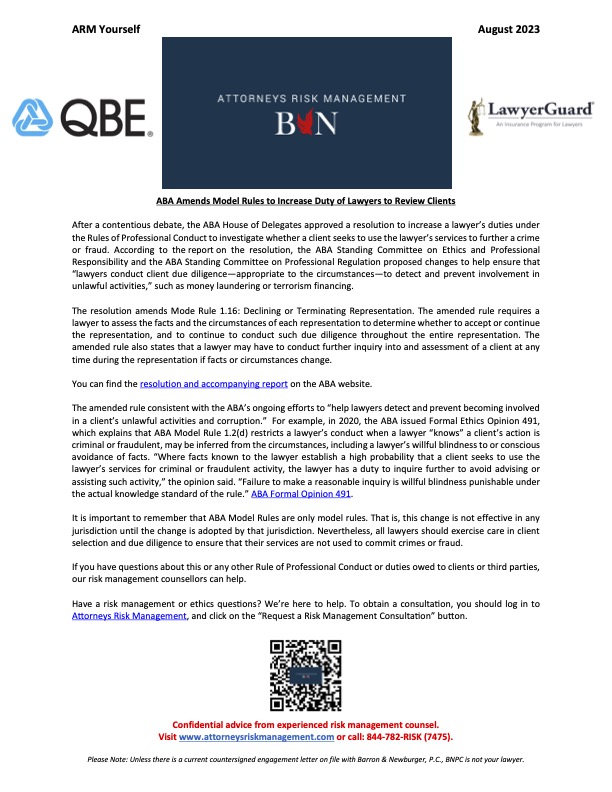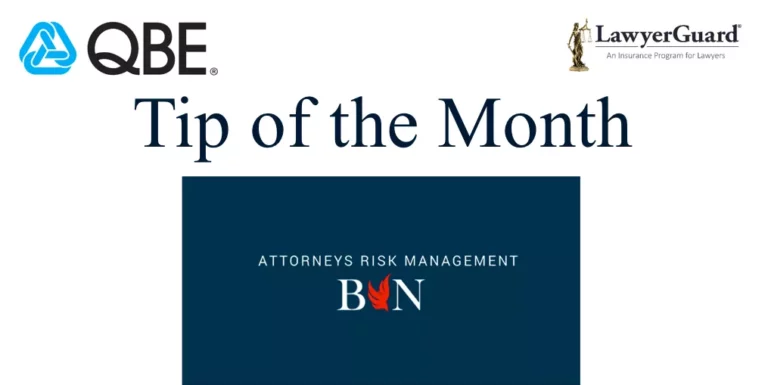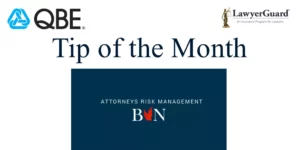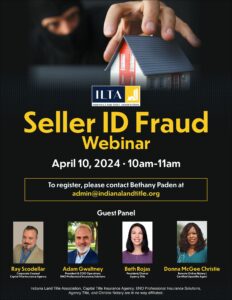A lawyer’s duty to investigate whether a client seeks to use their services to further a crime or fraud is primarily rooted in ethical obligations and responsibilities. These duties can vary based on jurisdiction and local rules of professional conduct, but generally, lawyers are expected to adhere to a few key principles when dealing with potentially criminal or fraudulent activities by their clients.
QBE-Lawyer Guard just published the August issue of their “Tip of the Month” series, about a recent resolution issued by the ABA Standing Committee on Ethics and Professional Responsibility and the ABA Standing Committee on Professional Regulation, which amends “Model Rule 1.16: Declining or Terminating Representation”, discussing the requirements a lawyer faces when assessing the facts and circumstances of each representation to determine whether to accept or continue the representation, and the due diligence required of the lawyer throughout the entire representation.
Read and click to download the latest “Tip of the Month” from QBE-LawyerGuard below:

Read on to learn about some of the typical duties of a lawyer conducting due diligence on a client:
- Duty of Confidentiality: Lawyers have a duty to maintain the confidentiality of client information. This means that information shared by the client in the course of seeking legal advice or representation should not be disclosed to third parties without the client’s consent. However, this duty is not absolute and may be overridden in cases where the lawyer reasonably believes the client’s actions could result in death or substantial bodily harm.
- Duty to Avoid Assisting Criminal or Fraudulent Activities: Lawyers are generally not allowed to assist clients in committing illegal or fraudulent acts. If a lawyer has reason to believe that a client’s intended use of their services is to further a crime or fraud, they have an obligation to refuse representation or withdraw from the representation.
- Duty to Make Reasonable Inquiries: If a lawyer has reason to believe that their client’s intentions might involve criminal or fraudulent activities, they may be required to make reasonable inquiries to determine the legitimacy of the client’s plans. However, the extent of these inquiries can vary and might not require the lawyer to act as a detective or investigator.
- Duty to Prevent Money Laundering: Lawyers are often subject to anti-money laundering (AML) regulations and may be required to conduct due diligence to prevent their services from being used for money laundering or other financial crimes. This could involve verifying the source of funds and reporting suspicious transactions.
- Duty to Withdraw: If a lawyer discovers that a client is seeking to use their services to commit a crime or fraud, they may have an obligation to withdraw from the representation. This can help the lawyer avoid becoming complicit in illegal activities.
- Duty to Report: In some jurisdictions, lawyers are required to report certain crimes, particularly those involving potential harm to individuals or society, to the appropriate authorities. This is known as the duty to report or the “noisy withdrawal” rule.
- Duty of Candor to the Tribunal: Lawyers have a duty to be honest and forthright with the court or tribunal. If a lawyer becomes aware that their client is presenting false evidence or testimony, they may have an obligation to take appropriate actions, which could include withdrawing from the representation.
It’s important to note that the specifics of these duties can vary depending on the jurisdiction and the rules of professional conduct that apply. Lawyers must be familiar with the ethical rules and regulations in their jurisdiction to ensure they are fulfilling their obligations appropriately. If you’re seeking legal advice on this matter, it’s recommended to consult with a qualified attorney who can provide guidance tailored to your specific situation and jurisdiction.
Source: QBE-LawyersGuard


